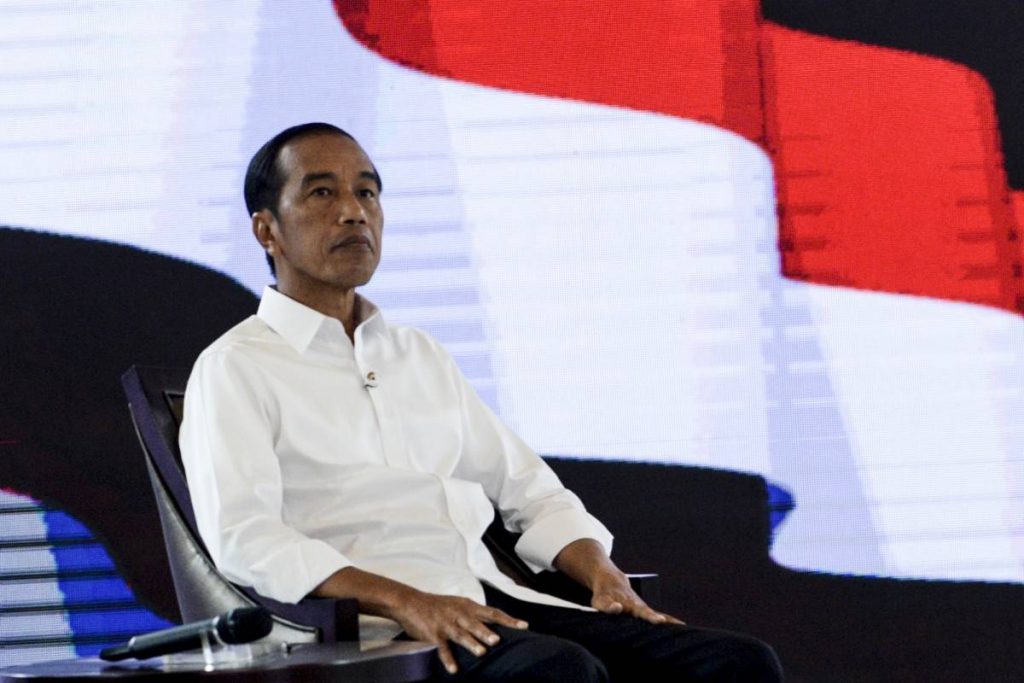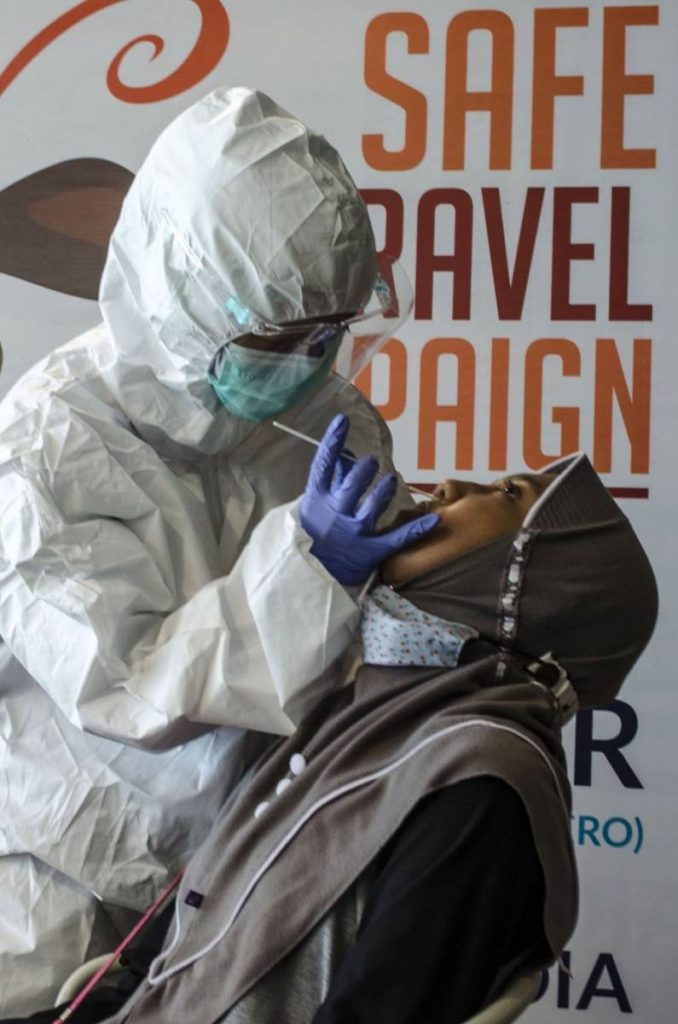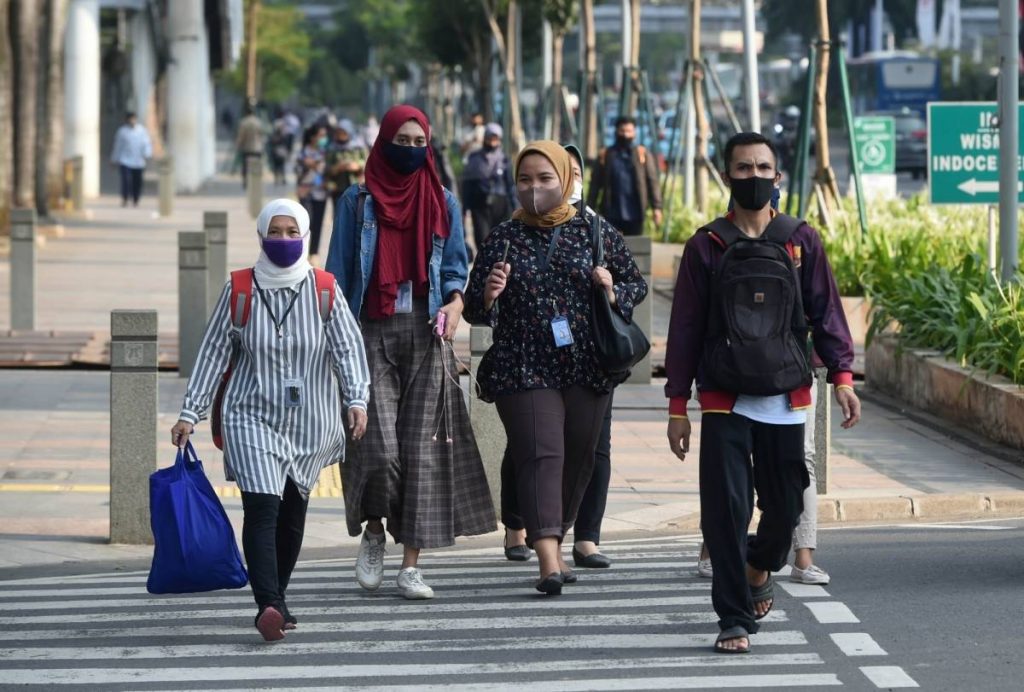Indonesia launched its massive Covid-19 vaccination program with health workers as the main priority group, a day after President Joko Widodo received the first shot developed by China’s biopharmaceutical company Sinovac Biotech.
On Thursday morning, a mass vaccination was held at state-run Cipto Mangunkusumo Hospital in central Jakarta, Xinhua news agency reported.
At least 25 health workers at the hospital have received doses of the Sinovac vaccines, Lies Dina Liastuti, the hospital’s director, told a press conference, adding that about 6,000 health workers nursing patients at the hospital are to be vaccinated periodically.
“Thanks to the government for providing protection to health workers by providing the Covid-19 vaccines,” Liastuti said.

Deputy Minister of Health Dante Saksono, who received a dose of the vaccine at the hospital on Thursday, said more than one million health workers across the country will be vaccinated gradually before public servants get inoculated.
Immunity would appear between two and six weeks after the injection of the second dose of the vaccine. But those who have been vaccinated still need to implement health protocols, Saksono said.
The deputy minister expressed hope that the massive vaccination program would help Indonesia reach herd immunity after 181.5 million people — around two thirds of the country’s population — are inoculated in a period of 15 months.
The country’s food and drug authority BPOM issued an emergency use authorization for Sinovac’s Covid-19 vaccine on Monday after interim results of its late-stage trials in the country showed an efficacy rate of 65.3 per cent.
The vaccine has also been declared halal by the Indonesian Ulema Council, or acceptable for use under Islamic law.
After receiving the shot on Wednesday, Widodo said he did not feel any pain from the injection. “It doesn’t hurt at all,” said the president with a laugh.

“We need to do the vaccination to stop the chain spread of Covid-19 and give health protection to us and the safety to all Indonesian people. It will also help accelerate economic improvement,” he added.
Following the president, the Indonesian military chief, national police chief and health minister, among others, were also vaccinated on Wednesday.
On Thursday, Indonesia’s Health Ministry reported that confirmed Covid-19 cases in the country increased by 11,557 in the past 24 hours to 869,600, with the death toll adding 295 to reach 25,246.
Indonesia has ordered a total of 125.5 million doses of the Sinovac vaccine. Currently, three million ready-to-use doses, which were delivered to the country in two batches in December last year, have been distributed to the country’s 34 provinces.
Another 15 million doses of raw materials of the Sinovac vaccine were delivered to Indonesia on Tuesday. They will be brought to national vaccine manufacturing company Bio Farma in West Java for further process into ready-to-use doses.
Widodo said last week that his country has ordered a total of 329.5 million doses of vaccines from various pharmaceutical manufacturers. Apart from those from Sinovac, Indonesia has also secured supplies of vaccines from British-Swedish biopharmaceutical company AstraZeneca and US company Novavax, among others.
The Covid-19 vaccines will be offered free of charge for all Indonesians.
The first vaccination period will be held until April this year and would see 1.3 million medical workers, 17.4 million public workers, and 21.5 million elderly people inoculated.
The second period will run from April to March 2022 for 63.9 million vulnerable people and 77.4 million others.
At a press conference on Monday, BPOM chief Penny Lukito said the COVID-19 vaccine produced by Sinovac, which has undergone a Phase III trial at Padjadjaran University in Bandung, met the safety standards set by the World Health Organization.
The evaluation results of the supporting safety data obtained from the Phase III clinical studies in Indonesia, Brazil and Turkey are overall safe with the incidence of mild to moderate side effects, she said.
The largest economy in Southeast Asia is pinning its hope on massive vaccination drives to control the outbreak and revitalize its battered economy.
In the first quarter of 2020, Indonesia still recorded a positive growth of 2.97 per cent year-on-year, before witnessing a contraction of 5.32 per cent in the second quarter and a 3.49 per cent fall in the third quarter.
Trade Minister Muhammad Lutfi believed that the current vaccination drive will embolden the country’s economic recovery.
“The reference for our economic improvement comes from the success of fighting Covid-19,” he said.
Industry Minister Agus Gumiwang Kartasasmita is optimistic that growth will be in the range of 4.5 to 5.5 per cent this year.
“The game changer for the national economic recovery during the pandemic is the implementation of this vaccination,” he said.
However, Enny Sri Hartanti, a researcher at the Indonesian Institute for Development of Economics and Finance, an independent research agency, believed that controlling Covid-19 alone is not enough to restore Indonesia’s economy.
The pandemic had a strong impact on the fundamental structure of the Indonesian economy, especially in the labour sector after mass layoffs, she said.

The government must restore the manufacturing sector to create more jobs, recover purchasing power, and bolster the real economy, she added.
Meanwhile, Yose Rizal Damuri, an expert at the Center for Strategic and International Studies, said Indonesia had plenty of capital to quickly recover from the crisis as 60 percent of the country’s economy depends on the domestic sector.
“Even if the United States or Europe is still in crisis, Indonesia can recover the economy quickly, as long as the outbreak is under control,” Damuri said.
Indonesia’s economy will recover soon if the government can convince the market of economic certainty and that the outbreak is under control, he said.

Leave a Reply